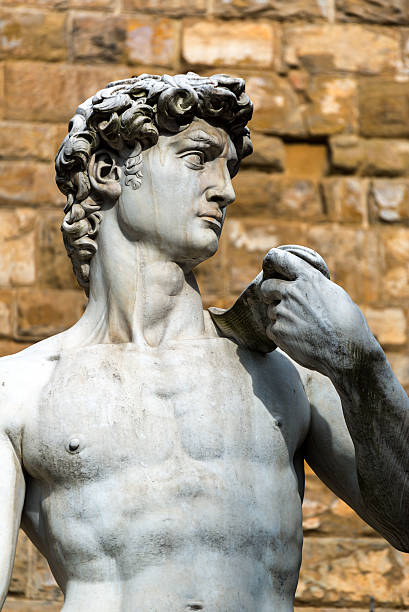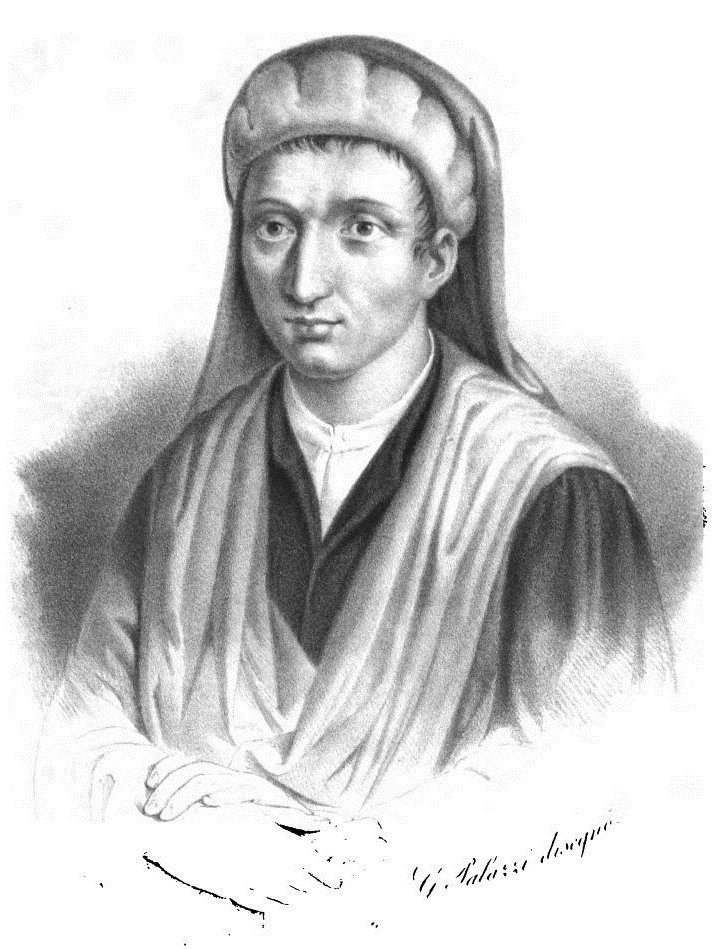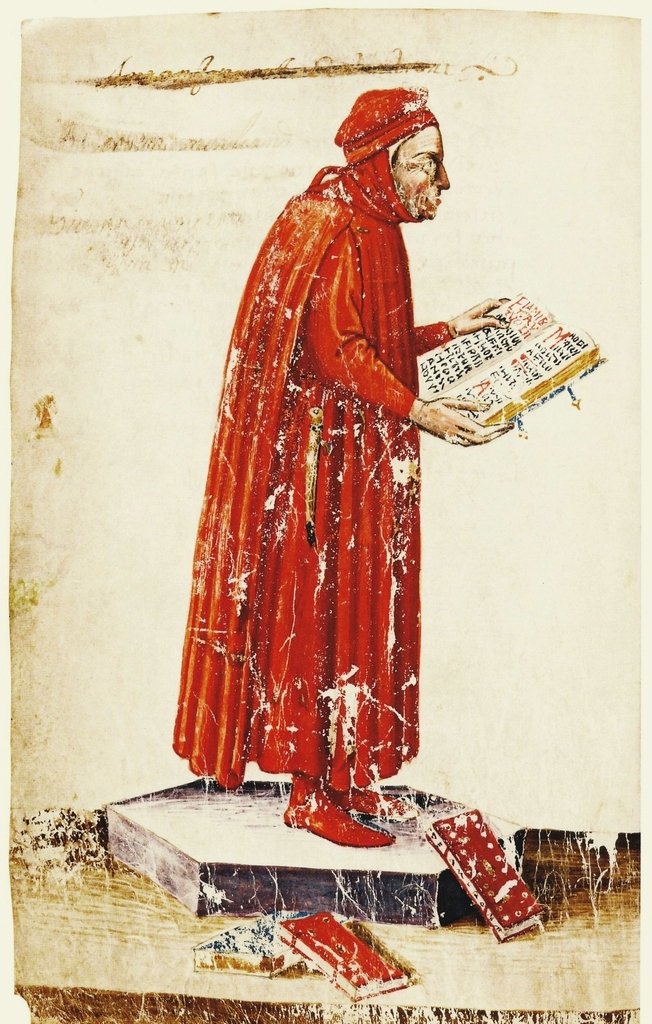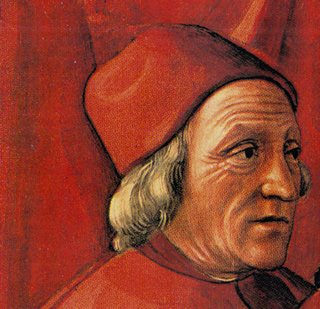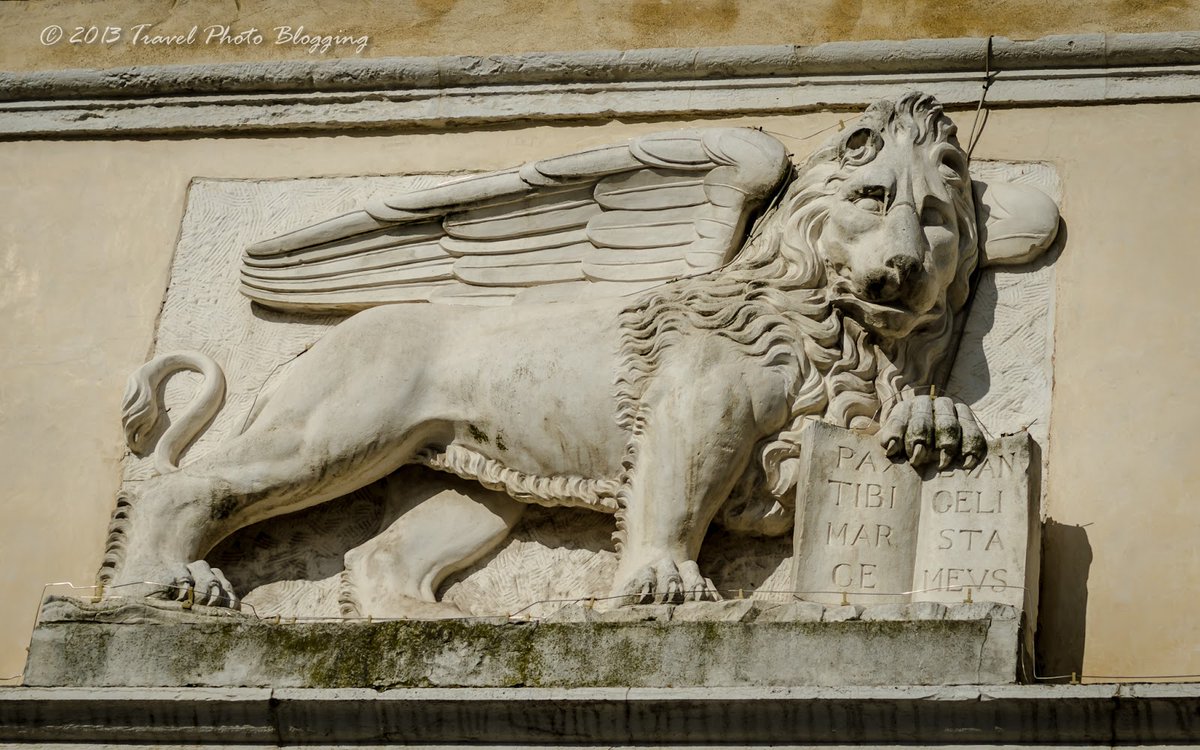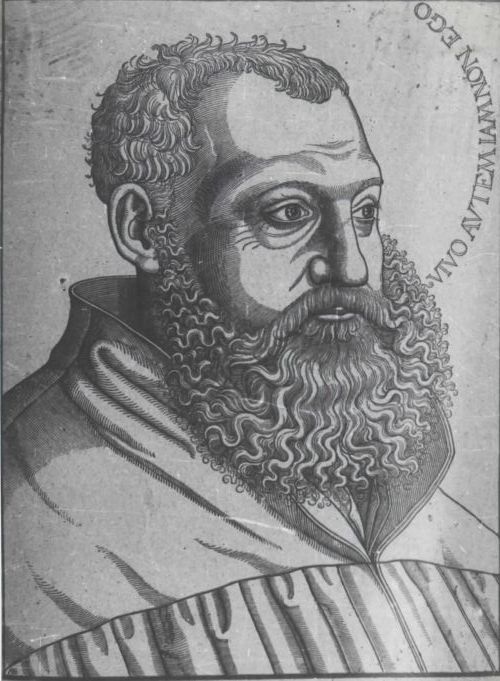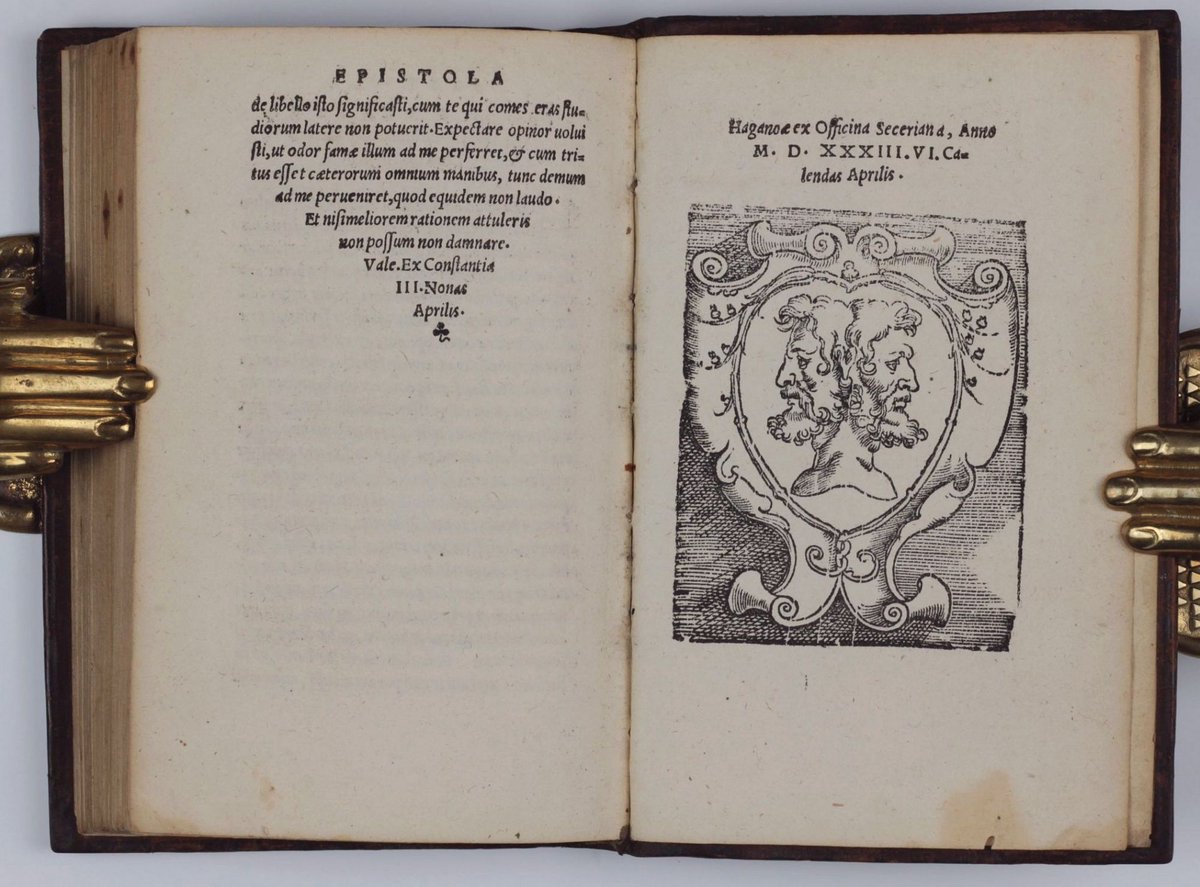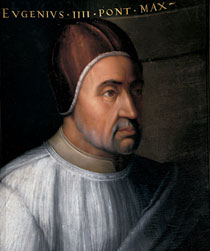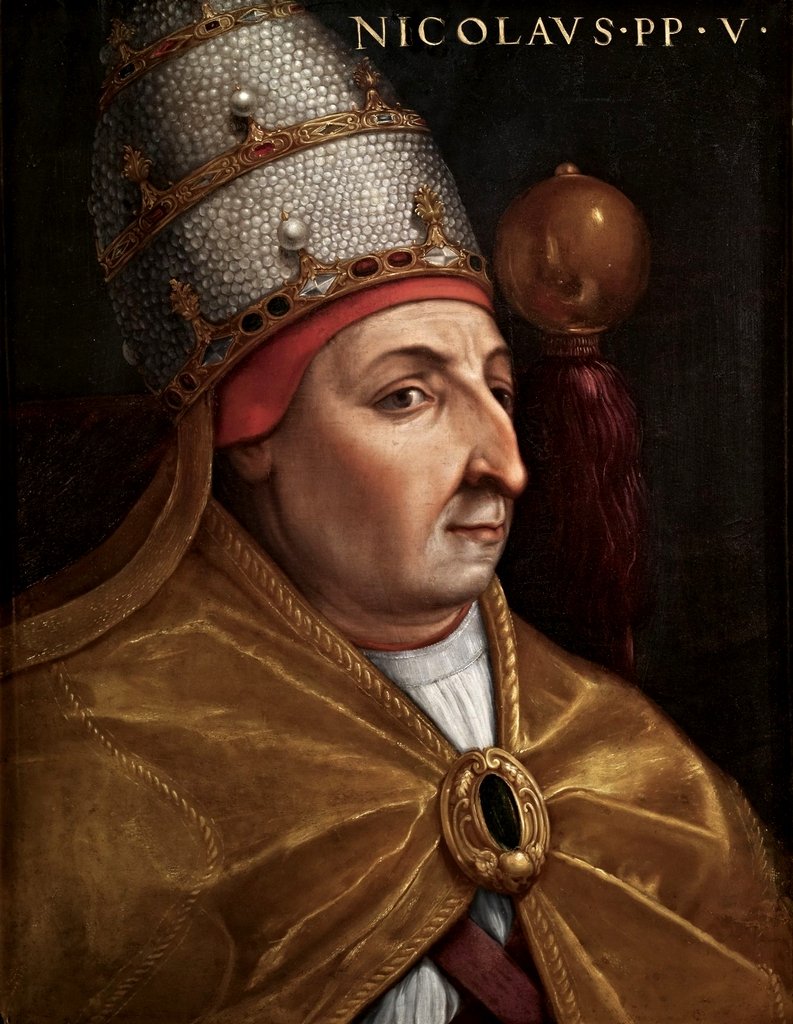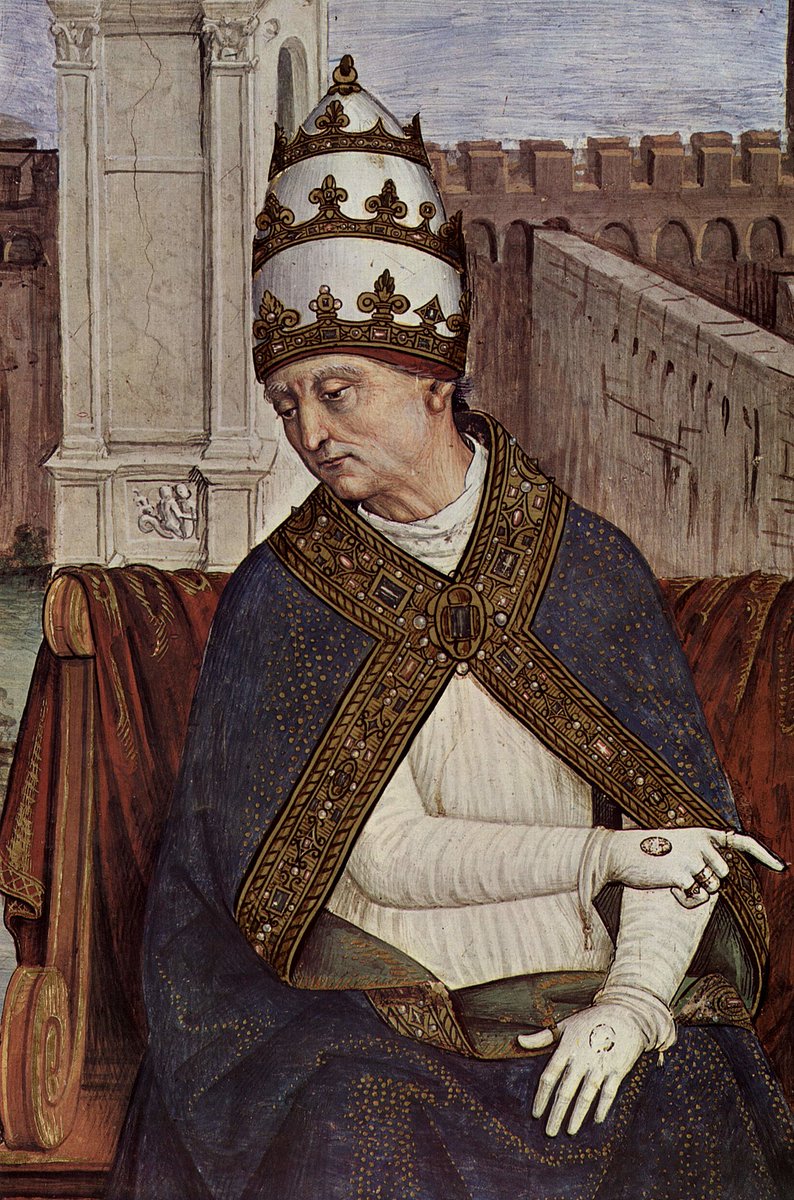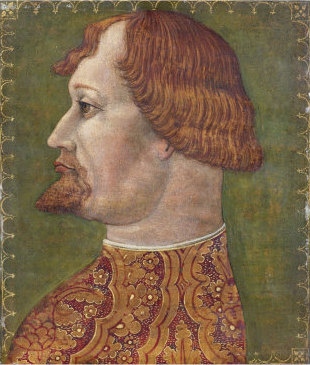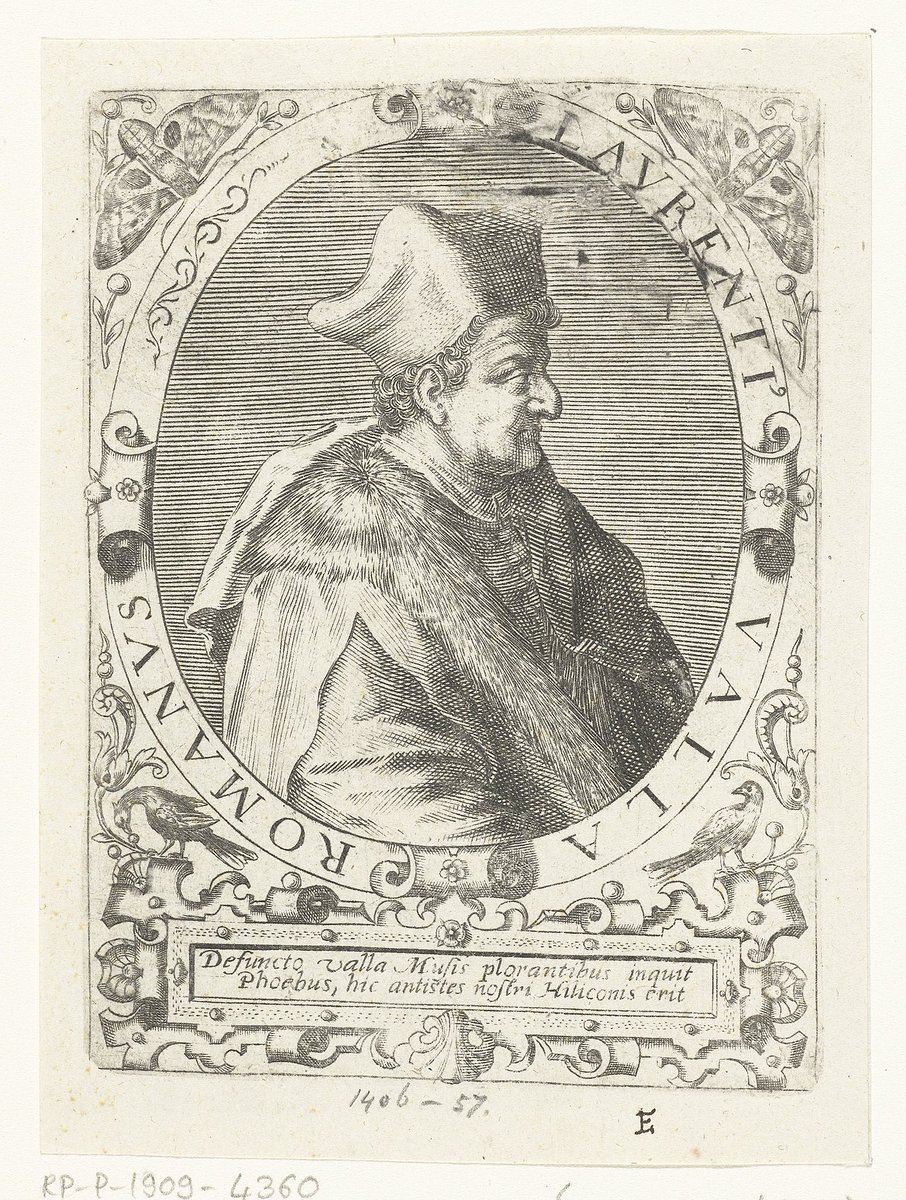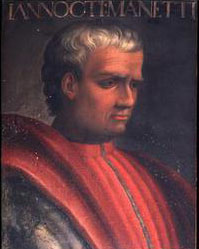Florentine Humanism:
Following the teaching of Boccaccio and Petrarch on the circle of Florentine prehumanists, the new cultural movement took on very specific connotations in relation to the republican constitution of the city starting the first phase of humanism called "civil"
Following the teaching of Boccaccio and Petrarch on the circle of Florentine prehumanists, the new cultural movement took on very specific connotations in relation to the republican constitution of the city starting the first phase of humanism called "civil"
This programmatic line was declined in the political commitment of Coluccio Salalutati and animator of the humanist circle of Santo Spirito, and of Leonardo Bruni, both enthusiastic patrons of classical languages as a vehicle for the dissemination of culture.
Salutati perennially exalted the model of the Florentine constitution, based on libertas and personal self-determination typical of The Roman Republic. Heir to Salutati's civil humanism was Leonardo Bruni...
A profound connoisseur of Ancient Greek, a tireless translator from this language into Latin from his youth,Bruni manifested with even more vigor and effectiveness the excellence of the Florentine socio-political model than Salutati culminating in the Historia florentini populi.
With the coming to power of Cosimo Medici, civil humanism gave way to a form of humanism in which the elitist, abstract and contemplative dimension prevailed. Cosimo favored a humanism that did not form a new autonomous ruling class inspired by the purest republican values.
Offering protection to intellectual courtiers such as Marsuppini, Bisticci and, last but not least, Marsilio Ficino, whose influence on Florentine culture was decisive in the shift of humanistic interests from political participation to philosophical and Christian contemplation
Ficino sees in that ancient wisdom the presence of a revelation , of a pious philosophia that took place in Christianity but of which humanity of all times had always been a participant.
Venetian Humanism:
Venetian humanism is a political humanism not very different from Florence. The difference between the Florentine and Venetian republican models consisted in the flexibility of social classes, an element that did not exist in Venice, making it a noble republic
Venetian humanism is a political humanism not very different from Florence. The difference between the Florentine and Venetian republican models consisted in the flexibility of social classes, an element that did not exist in Venice, making it a noble republic
Following the military expansion on the mainland and the acquisition of Verona and Padua. This allowed the fusion of the humanistic conscience with the desire to make the State prestigious, with the aim of forming future ruling classes that supported the greatness of the homeland
In this sense promoters of state were on the one hand Pier Paolo Vergerio the Elder on the other Venetian patrician Leonardo Giustinian, fervent promoter of the school program advocated by Vergerio. They are considered the "champion of the of the ruling class for the new culture"
Barbaro devoted himself to the planning of Venetian political humanism through political activity and literature. Among the main works the De re uxoria in which Barbaro underlines the importance of the mother in the education of the child according to the Patrician customs
A fundamental element of Venetian humanism was the strong religious dimension with a fusion between the classical elements and Christianity. Thanks to the action of religious, such as St. Lorenzo Giustiniani, the interest in classics went hand in hand with the doctrinal aspect.
Roman Humanism:
Roman humanism can find its beginning with Pope Innocent VII the chair of Greek and Latin in Rome. However, it was under the pontificate of Martin and that of Eugene IV that the humanistic culture in Rome saw intensification around the Roman Curia
Roman humanism can find its beginning with Pope Innocent VII the chair of Greek and Latin in Rome. However, it was under the pontificate of Martin and that of Eugene IV that the humanistic culture in Rome saw intensification around the Roman Curia
The rise of Roman humanism found its fulfillment under the pontificates of Niccolo V and Pius II. The first, a passionate bibliophile and lover of Roman antiquities, proposed a renovatio urbis aimed at glorification of Christian Rome
After Pius II, the crisis of the humanistic parable began. The popes will no longer have the same want for humanism, or at least they will protect it by considering it as an acquired cultural factor. Roman humanism,exhausted, reduced itself to a pure ornament of papal power
Lombard Humanism:
Humanism sponsored by the Sforza dynasty, tried to oppose the instrumental use of which the republicans Florence and Venice made classicist ideals. Born and developed by Pasquino Cappelli a true propeller of the new culture in Lombardy
Humanism sponsored by the Sforza dynasty, tried to oppose the instrumental use of which the republicans Florence and Venice made classicist ideals. Born and developed by Pasquino Cappelli a true propeller of the new culture in Lombardy
The intellectuals promoted the excellence of the Caesarean monarchical model (represented precisely by Julius Caesar ) against the republican one embodied by Scipio the African. Gian Galeazzo Visconti favored the patronage of this political production.
With this in mind, humanists like the Franciscan friar Antonio da Rho, Guiniforte Barzizza and, above all, Pier Candido, secretary of the duke and famous for having completed the translation of Plato's Republic and for his intense activity as a translator of classical works
Finally, another directive on which the first Lombard humanism moved was that of the rediscovery of ancient Greek, thanks to the 3 year magisterium that Manuele Crisolora exercised there from 1400 to 1403
Neapolitan Humanism:
Due to the internal wars of the Anjou dynasty , the Kingdom of Naples came late in the acquisition of humanistic knowledge. After the disastrous government of, Giovanna II , the Kingdom of Naples fell into the hands of the Aragonese Alfonso V
Due to the internal wars of the Anjou dynasty , the Kingdom of Naples came late in the acquisition of humanistic knowledge. After the disastrous government of, Giovanna II , the Kingdom of Naples fell into the hands of the Aragonese Alfonso V
A man not endowed with exceptional political-military skills, Alfonso tried to repair the damage caused by the war, establishing almost equal relations with the barons and culturally elevating the kingdom, determining the entry of humanism
Alfonsine humanism was not favored by native humanists, but Catalan intellectuals who were fond of the Petrarchian revolution. Supporter of humanism understood as a cultural movement of ethical and professional training of a political class that supported him

 Read on Twitter
Read on Twitter![The different views of Humanism throughout the Italian Peninsula during the Rennaisance[Thread] The different views of Humanism throughout the Italian Peninsula during the Rennaisance[Thread]](https://pbs.twimg.com/media/EuSwRdhXIAYPpAX.jpg)
